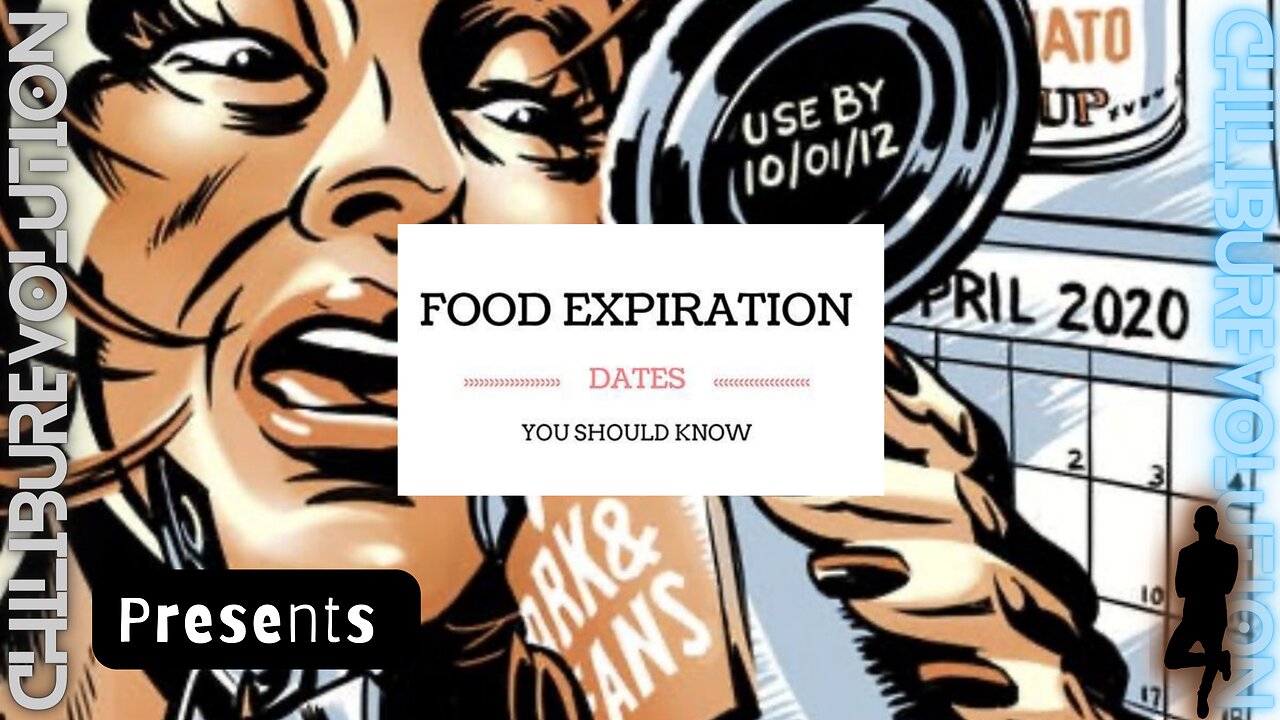Premium Only Content

Best Before Dates
Someone in Canada, right now as you read this, is throwing away a perfectly good food item because it has surpassed its best before date.
Throwing out food prior to its expiration has negative affects on the environment and humankind alike, due to the heavy agricultural use and excess greenhouse gas emissions.
According to the Recycling Council of Ontario, Canadians throw out 6 million tonnes of food each year. Of that annual wasted food, 2.2 million tonnes is still considered edible, according to the National Zero Waste Council.
This is largely due to the fact that consumers often mistake the ‘best before’ to be the same as the ‘expiration’ date.
To begin lets first break down the two terms. A ‘best before’ date is primarily a quality indicator stating that the food is best if consumed prior to the date listed, but that doesn’t mean that the food has gone bad.
It just simply means it is past its ‘prime’, so to speak. You’ll find best before dates largely on dairy products, canned food & boxed/bagged food (such as crackers). The ‘best before’ date is meant to guarantee certain properties, such as taste, aroma, freshness and even nutrients by that given date.
Given this, the best way to tell if the food has in fact spoiled is through smell, taste and sight. Mold is a key indicator!
‘Expiration’ dates on the other hand are considered to be that of its namesake, an expiry date. Thus, food with an expiration date should not be consumed after the specified date.
The product is no longer safe to consume after the date, usually due to bacteria growth. You’ll regularly find ‘expiration’ or ‘use by’ dates on meat, fish & poultry products. Often, to extend these dates, consumers will freeze and then thaw food, which does increase the longevity of the expiration date significantly.
Throwing out food prematurely is one of the leading reasons for excessive food waste around the globe. Not only is this not good for the environment due to excess water use & land use for agriculture but it is also simply just a waste of money/
The average household in Canada spends approximately $1700.00 on wasted food. That’s a lot of food (& money)!
-
 3:17
3:17
Mind, Body & Soul
3 months agoWe've Got Your Back!
461 -
 LIVE
LIVE
IcyFPS
3 hours agoIcy Tackles Rebirth Island, again! Day 3 | Verdansk Soon | New META hunt? |
77 watching -
 1:22:18
1:22:18
Man in America
10 hours agoTECHNOCRACY INC.: Sinister Links Between Musk, USA, and the British Crown?
40.2K23 -
 2:40:30
2:40:30
SlingerGames
4 hours agoThursday Variety Stream!
15K4 -
 3:05:53
3:05:53
SIMSIM GT
5 hours agoConvoy | Truck Simulator | TRIPLE 55INCH SETUP | GOPRO POV |
23K1 -
 5:13:21
5:13:21
IronAngel26
6 hours ago $0.39 earnedfew games of fortnite
17.2K2 -
 3:25:50
3:25:50
GamingwithMagus
5 hours agoOG Final Fantasy fan plays FF7 Rebirth part 27
27.4K4 -
 14:40:56
14:40:56
charwinslow
16 hours agocurrently playing Assassin's Creed: Shadows, expert mode (& Nintendo Direct reaction n yoga)
22K -
 4:18:51
4:18:51
hockeymancb77
6 hours agoNEW GAME ALERT!!! R.E.P.O. Stream! Lets get it!
30.9K2 -
 LIVE
LIVE
TwinGatz
6 hours ago🔴LIVE - 1.3 UPDATE HAS LANDED | ARMA Reforger
252 watching